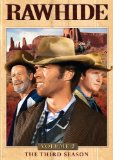| Reviews & Columns |
|
Reviews DVD TV on DVD Blu-ray 4K UHD International DVDs In Theaters Reviews by Studio Video Games Features Collector Series DVDs Easter Egg Database Interviews DVD Talk Radio Feature Articles Columns Anime Talk DVD Savant Horror DVDs The M.O.D. Squad Art House HD Talk Silent DVD
|
DVD Talk Forum |
|
|
| Resources |
|
DVD Price Search Customer Service #'s RCE Info Links |
|
Columns
|
|
|
Rawhide: The Third Season, Volume 2
Rollin', rollin' rollin',
Rollin', rollin' rollin',
Keep movin', movin', movin',
Though they're disapprovin',
Keep them dogies movin',
Rawhide!
Don't try to understand 'em,
Just rope, throw and brand 'em,
Soon we'll be livin' high and wide!
My heart's calculatin',
My true love will be waitin',
Be waiting at the end of my ride!
Move 'em on, head 'em up, head 'em up, move 'em on,
Move 'em on, head 'em up, Rawhide!
Let 'em out, ride 'em in, ride 'em in, let' em out, cut 'em out,
Ride 'em in, Rawhide!
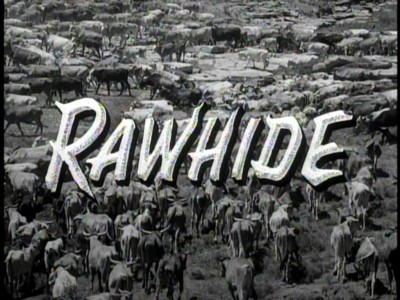
Although feeling a bit discombobulated, coming in on the second half of a season (we didn't receive Volume 1), I can reaffirm with the release of Rawhide: The Third Season, Volume 2, that Rawhide remained one of the top-tier TV westerns from the Big Three networks (at least during this second half of the 1960-1961 television season). The drovers are still punching those scram-sided, kettle-bellied scrubs across the Sedalia Trail, while trail boss Gil Favor, ramrod Rowdy Yates, and the rest of the gang encounter a variety of intriguing characters - and dangerous situations - every time they venture away from the safety of the cattle drive. Along with Gunsmoke and Wagon Train, Rawhide represents the cream of the crop of early 60s network westerns.
Having already written a detailed look at Rawhide's structure and aesthetic direction, I won't go into great detail again covering the series' set-up. Created by Charles Marquis Warren, who had directed several mid-level Westerns, as well as producing the legendary Gunsmoke, Rawhide was envisioned as a gritty, realistic take on the cattle drives of the old west. The nomadic nature of the drives back and forth from North Texas to Sedalia, Kansas provided plenty of opportunities for the writers to have the cast encounter various other characters and situations along the trail. Heading up the regular cast was patient, understanding, but tough-as-nails Gil Favor (Eric Fleming), the trail boss; high-spirited cat nip-to-the-ladies Rowdy Yates (Clint Eastwood), the drive's "ramrod," a sort of jack-of-all-trades on the runs; steady veteran Pete Nolan (Sheb Wooley), the drive's scout; always grumbling, comical Wishbone (Paul Brinegar), the chuck wagon cook; stalwarts Jim Quince and Joe Scarlett (Steve Raines and Rocky Shahan), drovers for the run; and poor, dim "Mushy" Mushgrove (James Murdock), the young, not too bright kid who helped out Wishbone.
As I've written in other reviews on evaluating seasons or entire series of vintage TV shows, it can be difficult to get a handle on where a show has been, and where it's going, if you're diving right into the middle of it. Not having reviewed Season One of Rawhide, nor the first part of this Third Season, it's not easy to make judgment calls on the show's direction (nor strictly accurate, for that matter). Having viewed the Second Season (and not having any previous Rawhide experience), I was more than impressed by the show's gritty emphasis on the realities of the cattle drive, coupled with a determination to underpin the episodes with a solid dramatic core (characterizations were also key, with strong writing oftentimes making some of the Rawhide episodes play like the live dramatic anthology series that were still knocking around in the late 50s). Watching this last half of the Third Season, the only difference I noted with the structure of the show seemed to be a gradual pulling away from concentrating on the day-to-day operations of the cattle drive (which every town seems to want to stop in these episodes), and more incidents where the drovers peel off from the relative safety of the drive, only to find themselves isolated and in danger with various townspeople or farmers or outlaws hiding out along the trail. My understanding is that this is the final season where the show's originator, Warren, was associated with the series. Warren, a veteran TV producer and director whom many feel was responsible for the some of the best episodes of Gunsmoke, was apparently a pretty gruff, irascible Hollywood player who may have rubbed some of the Rawhide performers (as well as the CBS brass) the wrong way during his tenure on the show. Be that as it may, I will be curious to see how the Fourth Season turns out (and I do assume we'll get it here at DVDTalk?) without his involvement, because these episodes seem as strong as the ones I reviewed for Season Two.
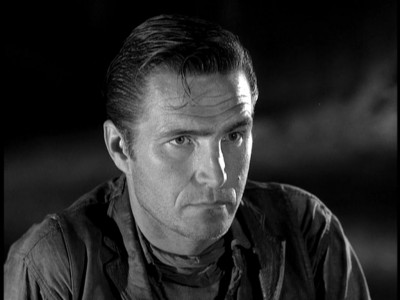
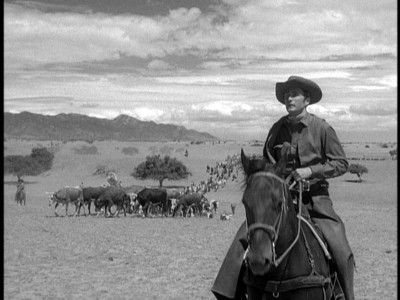
Weirdly, the first episode that opens up this set, Incident on the Road Back, actually feels like an season-opener, with all the boys broke (they don't even have their horses, although Wishbone managed to hang on to his chuck wagon) and separated after blowing their pay on women and poker. Rowdy, in a comical getup of fancy clothes and bowler hat, is waiting for Gil to return on the train so he and the other men can at least get up a grub stake, signing on for their next drive (I would have liked to see the episode before this one, to see if this particular episode was a continuation). What follows is a fairly complicated little mystery where Gil is set up as a horse thief in order to cover the theft of some money from the safe of a...blind sheriff, played by Gene Evans (a sheriff whose wife is being sexually blackmailed by the villain). That's a hell of a plot for a western series that is frequently dismissed as uninteresting or formulaic (having read Richard Schickel's - and I thought I was pompous - bio on Clint Eastwood, he doesn't have much good to say about the series, admitting to only spot-checking the episodes). And episode after episode keeps up that quality writing and production - a seemingly impossible feat today when you consider most new series can barely limp along with twenty-and-change episodes, while Rawhide delivered 30 one-hour shows during its peak).
A continuous theme that runs through many of these Rawhide episodes - and a theme I would suppose that manifests itself in the very DNA of the western genre - is the almost constant battle between characters, and within themselves, to define what it is to be a "man." Out in the harsh wilderness, as many of these stories go, your word is your bond, your only measure of worth in an environment and a society that doesn't care if you live or die. If the drought, the heat, or the punishing routine of the job (including riding among thousands of cattle who could squash you like a bug) doesn't kill you, the Indians or the numerous villains, thriving in the large, open, lawless spaces, will. And even when you reach "civilization," there's no guarantee you won't get strung up by well-meaning townspeople, scared of outsiders or fed up with outlaws posing as drovers (several episodes in this set feature that terror of innocents caught up in an outwardly just, but cruelly blind society).
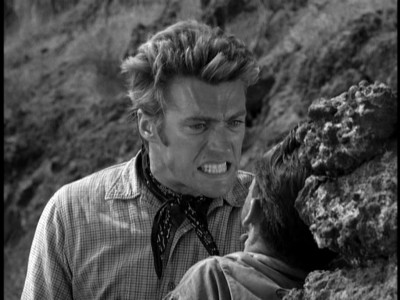
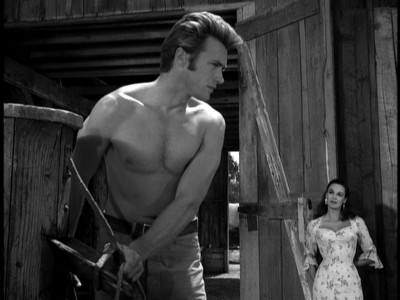
Why these meditations on what it means to be a "man," in a fictional West of a hundred years before, would interest 1961 TV viewers, is an interesting question. Certainly escapism would have played a big role in these shows' positive reception, but I wonder, too, if these little morality tales, always predicated on whether or not Gil or Rowdy or Pete or the others were "men of their word," also spoke to two groups of late 50s, early 60s American males who were just as invested in that argument as the fictional characters of Rawhide? Perhaps those men who still lived in smaller towns and rural areas, where such moral tenets in business and social intercourse were still practiced, and were considered traditionally viable, saw approval of their code in the popular culture of the western - while lamenting the obvious fading away of their code in the rapidly modernizing 1960s America? And perhaps those men who were already established in the corporate culture that firmly took root in 1950s and 1960s America, those legions of men in gray flannel suits, saw in Rawhide and other TV westerns, a momentary respite from their own increasingly mendacious corporate world, where a man's "word" meant nothing if the man was merely a tiny cog in a huge corporation? Maybe that's been the essential appeal of the American western since it became our best known film genre: a reaffirmation of our core values, while at the same time, a nostalgic lament for what we know isn't true anymore (if it ever really was).
There are plenty of stand-out episodes in this last-half Third Season, including Incident of the New Start, where Gil willingly takes a demotion to ramrod so his men can have jobs on the new cattle drive (there's an amusing bit with Eastwood and Fleming, dodging bottles being thrown in a saloon fight). Incident of the Running Iron is an excellent, twisty mystery, with Rowdy on the run, hiding out in a small town that's looking to hang him. Incident Near Gloomy River plays like something out of Studio One, with a young John Cassavettes engaged in a deadly psychological game of sibling rivalry over the love of a beautiful girl. Incident of the Boomerang is an exciting, action-filled go-around, with Woody Strode showing up, armed only with some boomerangs, to take out a contingent of Indians. There's also a well-stage fight with Gil and a Comanche warrior, as well as a Comanche gauntlet that proves too much for a cowardly villain (this episode, as well as others in Rawhide and indeed in many other American TV westerns of this period, in treating Indian characters with respect - the Indian chief is no different in his aims than the Whites; it's a tough world out in the West - again disproves the common misconception that all depictions of Indians in American popular culture at this time were demeaning and racist). Incident of the Phantom Bugler has an intriguing plot concerning a former Union officer trying to establish his own "kingdom" on land he's illegally commandeered. Incident of the Lost Idol has a marvelous scene where the men discuss their eventual deaths and burials, with Wishbone saying no man really dies if he's remembered - to which Rowdy says, "That depends on what you believe." Incident of the Running Man has another sympathetic portrait of a woman abused by an insensitive man, stifling, out in the middle of nowhere, in a marriage that doesn't fulfill her ("I'm dryin' up here, mister! I'm dyin'!"), while Incident Before Black Pass showcases yet another examination of the complicated, gray-area interaction between Whites and Indians out in the cruel West, with the heroine's father shown up to be a murderer of Indians, while the Kiowa chief who is being hunted, turns out to have saved the heroine's life as a child. It's yet another instance of Rawhide's surprisingly inclusive attitude towards challenging dramatic themes - themes which some critics can't seem to find in their dismissive put-downs of these 50s and 60s network westerns.
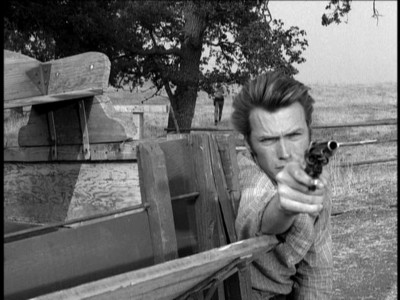
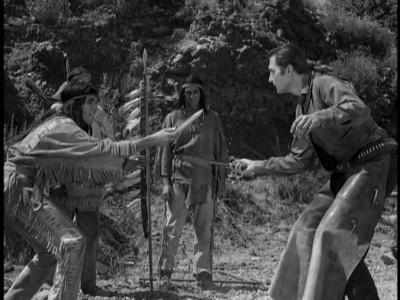
Here are the 15, one-hour episodes of the four-disc box set Rawhide: The Third Season, Volume 2 , as described on the insert:
DISC ONE:
Incident on the Road Back (2/24/1961)
In an elaborate scheme to relieve him of his money, Gil is falsely charged with horse stealing.
Incident of the New Start (3/3/1961)
When the owner of 1,600 head of cattle demands to be the new trail boss, Gil is reduced to second-in-command.
Incident of the Running Iron (3/10/1961)
When Quince is falsely accused of cattle rustling, it's up to Gil and Rowdy to save him from hanging.
Incident Near Gloomy River (3/17/1961)
The disappearance of a trail stream forces the drovers to learn why Gloomy River has suddenly gone dry.
DISC TWO:
Incident of the Boomerang (3/24/1961)
Bound for Australia with 200 head of cattle, a rancher joins forces with the drovers as they pass through Comanche territory.
Incident of His Brother's Keeper (3/31/1961)
Nolan becomes embroiled in a domestic triangle when he escorts an invalid's attractive wife to a dance.
Incident in the Middle of Nowhere (4/7/1961)
While searching for water, Gil and Rowdy stumble across a ballet troupe that is performing in the middle of the desert.
Incident of the Phantom Bugler (4/14/1961)
While attempting a river crossing, the drovers are stopped by a guerilla band that insists on being paid a sizeable toll.
DISC THREE:
Incident of the Lost Idol (4/28/1961)
The drovers cross paths with two youngsters who are being shadowed by a pair of bounty hunters.
Incident of the Running Man (5/5/1961)
While attempting to warn an Army outpost of an impending bandit attack, a deputy is killed and Rowdy is arrested for his murder.
Incident of the Painted Lady (5/12/1961)
When a crooked trail boss swindles them out of $15,000, his angry partners threaten to confiscate Gil's herd unless he makes good on their losses.
Incident Before Black Pass (5/19/1961)
A Kiowa chief who's escaped the reservation holds Rowdy and Nolan hostage.
DISC FOUR:
Incident of the Blackstorms (5/26/1961)
A notorious outlaw uses Mushy as his middleman in a desperate attempt to reestablish contact with his son.
Incident of the Night on the Town (6/2/1961)
Stopped by a court order, Gil is forced to deal with a wealthy woman who claims part of the herd is rightfully hers.
Incident of the Wager on Payday (6/16/1961)
A practical joke turns deadly when Rowdy's framed for a bank employee's murder.
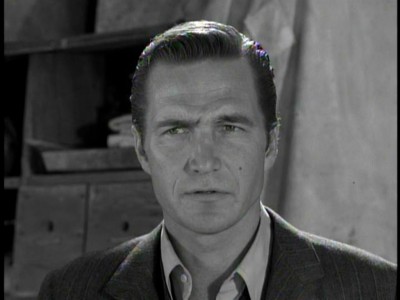
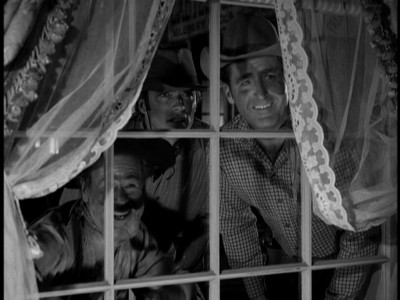
The DVD:
The Video:
The full frame, 1.33:1 black and white video transfers for Rawhide - The Third Season, Volume 2 look quite good, with many more episodes approaching the better elements of the Second Season I previously reviewed. Blacks are solid, with only minor compression issues (a bit of edge enhancement cropped up), and the image is sharp and clear. Scratches and dirt do occasionally show up, though. All in all, a solid presentation.
The Audio:
The Dolby Digital English mono soundtrack accurately reflects the original broadcast presentation. Close-captioning is available.
The Extras:
Regrettably, there are no extras for Rawhide - The Third Season, Volume 2.
Final Thoughts:
Although it's impossible for me to judge the entire Third Season just from this second half, Rawhide - The Third Season, Volume 2 does seem to be a continuation of the excellent action-oriented western I reviewed for Season Two - with healthy doses of keen psychological observations underpinning the characters' motivations, and the odd sociological comment thrown in to boot. While Clint Eastwood really doesn't have much to do here as Rowdy, Eric Fleming again impresses with his remarkably relaxed, natural performance as trail boss Gil Favor. A terrific collection of episodes from the final Charles Marquis Warren season. I highly recommend Rawhide - The Third Season, Volume 2.
Though the streams are swollen,
Keep them dogies rollin',
Rawhide!
Through rain and wind and weather,
Hell-bent for leather,
Wishin' my gal was by my side.
Oh, the things I'm missin',
Good vittles, love and kissin',
Are waitin' at the end of my ride.
Move 'em on, head 'em up, head 'em up, move 'em on,
Move 'em on, head 'em up,
Rawhide!
Count 'em out, ride 'em in, ride 'em in, let 'em out, cut 'em out,
Ride' em in,
Rawhide!
Paul Mavis is an internationally published film and television historian, a member of the Online Film Critics Society, and the author of The Espionage Filmography.


|
| Popular Reviews |
| Sponsored Links |
|
|
| Sponsored Links |
|
|
| Release List | Reviews | Shop | Newsletter | Forum | DVD Giveaways | Blu-Ray | Advertise |
|
Copyright 2024 DVDTalk.com All Rights Reserved. Legal Info, Privacy Policy, Terms of Use,
Manage Preferences,
Your Privacy Choices | |||||||









